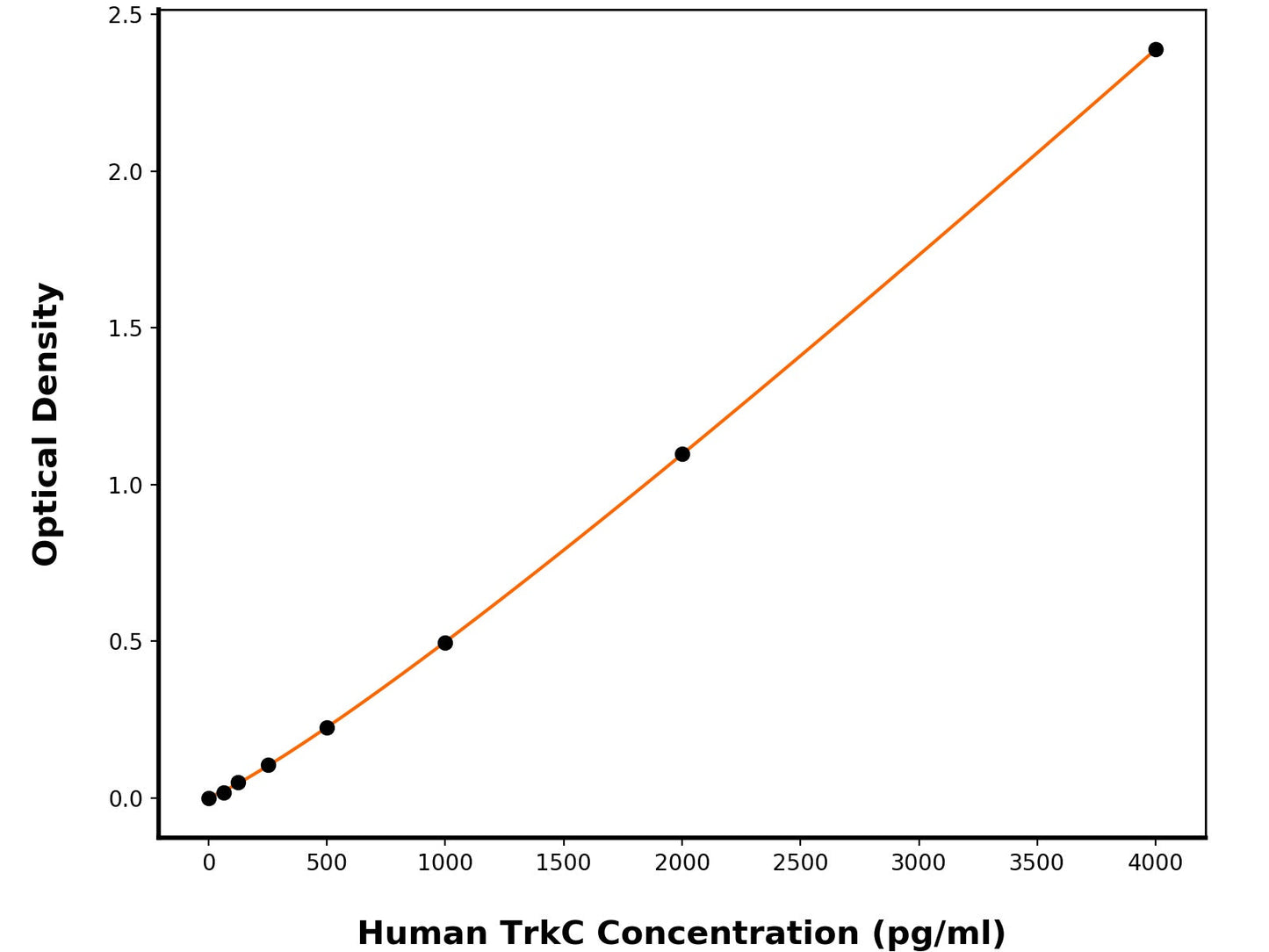1
/
of
1
Human Nt-3 Growth Factor Receptor (NTRK3) ELISA Kit
Human Nt-3 Growth Factor Receptor (NTRK3) ELISA Kit
This ELISA kit is designed to detect Human Nt-3 Growth Factor Receptor (Human NTRK3). The assay plate has been pre-coated with mouse anti-Human TrkC monoclonal antibody. When the sample containing TrkC is added to the plate, it binds to the antibodies coated on the wells. Then, a horseradish peroxidase conjugated mouse anti-Human TrkC Antibody is added to the wells and binds to TrkC in the sample. After washing the wells, substrate solutions are added, and the color intensity is directly proportional to the amount of Human TrkC present. The reaction is stopped by adding an acidic stop solution, and the absorbance is measured at 450 nm.
Catalog No:
BPE013
Regular price
$754.00 USD
Regular price
$580.00 USD
Sale price
$754.00 USD
Unit price
/
per
2 weeks
Couldn't load pickup availability
Product Details
Species Reactivity
Human
Sensitivity
12.83 pg/mL
Detection Range
62.5-4000 pg/mL
Sample Type
Serum, plasma, cell culture supernates
Incubation(s)
3.5 hour(s)
Research Areas
Cancer, Neuroscience
Background
NT-3 growth factor receptor is also known as neurotrophic tyrosine kinase receptor type 3 or TrkC tyrosine kinase or Trk-C receptor, is a member of the neurotrophic tyrosine receptor kinase (NTRK) family. This kinase is a membrane-bound receptor that, upon neurotrophin binding, phosphorylates itself and members of the MAPK pathway. TrkC/NTRK3 is widely expressed in the developing and adult nervous system. In later embryonic development, TrkC/NTRK3 is expressed in various structures of the CNS including the caudate-putamen, septal nuclei, cerebellum, and brainstem. Other neurotrophins include nerve growth factor(NGF), neurotrophin-3 and neurotrophin-4. In the PNS, The trkC hybridization appears to correlate, both temporally and spatially, with the outgrowth of axons toward their peripheral targets. TrkC/NTRK3 is widely expressed in the three identified branches of the mammalian nervous system and appears to correlate with the expression of NT-3, its cognate ligand. The apparent colocalization of trkC transcripts with NT-3 raises the possibility this neurotrophin exerts its trophic effects by a paracrine and/or autocrine mechanism. Signaling through this kinase leads to cell differentiation and may play a role in the development of proprioceptive neurons that sense body position. Mutations in the TrkC encoding gene have been associated with medulloblastomas, secretory breast carcinomas, and other cancers. Cancer Immunotherapy Immune Checkpoint Immunotherapy Targeted Therapy
Shipping Condition
Shipped on cold gel packs.
Storage Condition and Shelf Life
This product can be stored at 2-8C.
Analyte
NT-3 growth factor receptor
Regulatory Status
For Research Use Only

